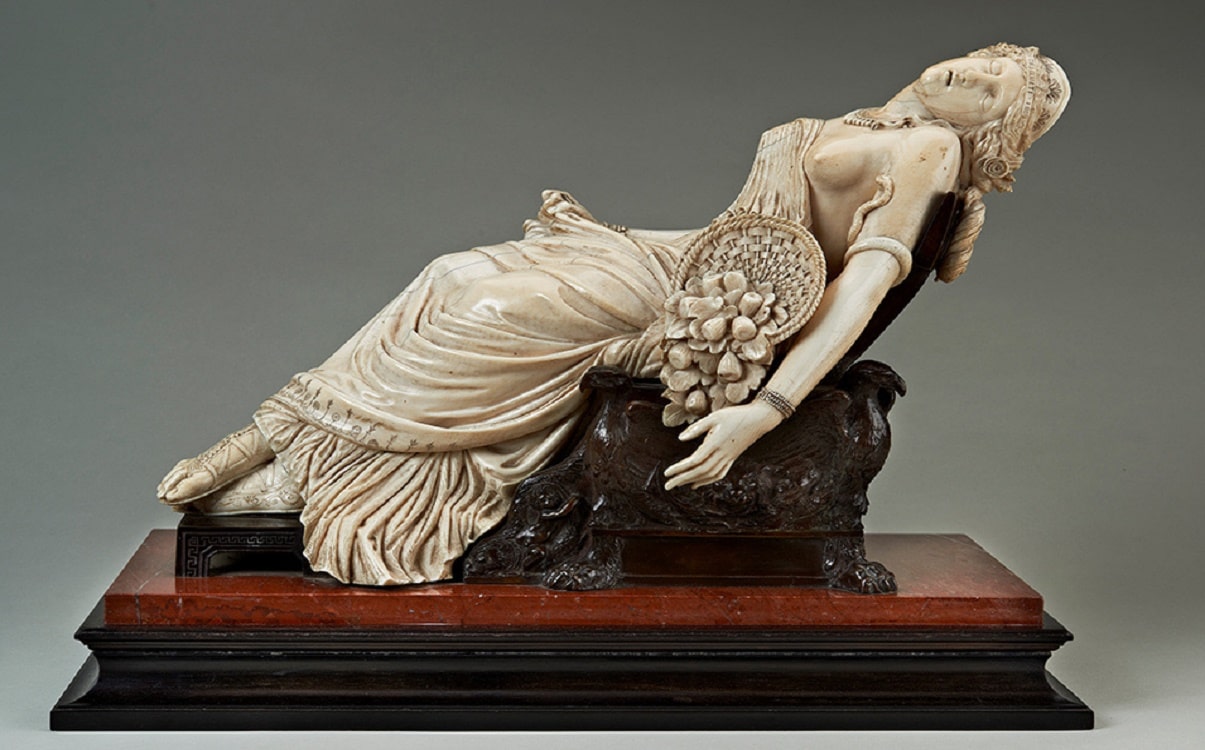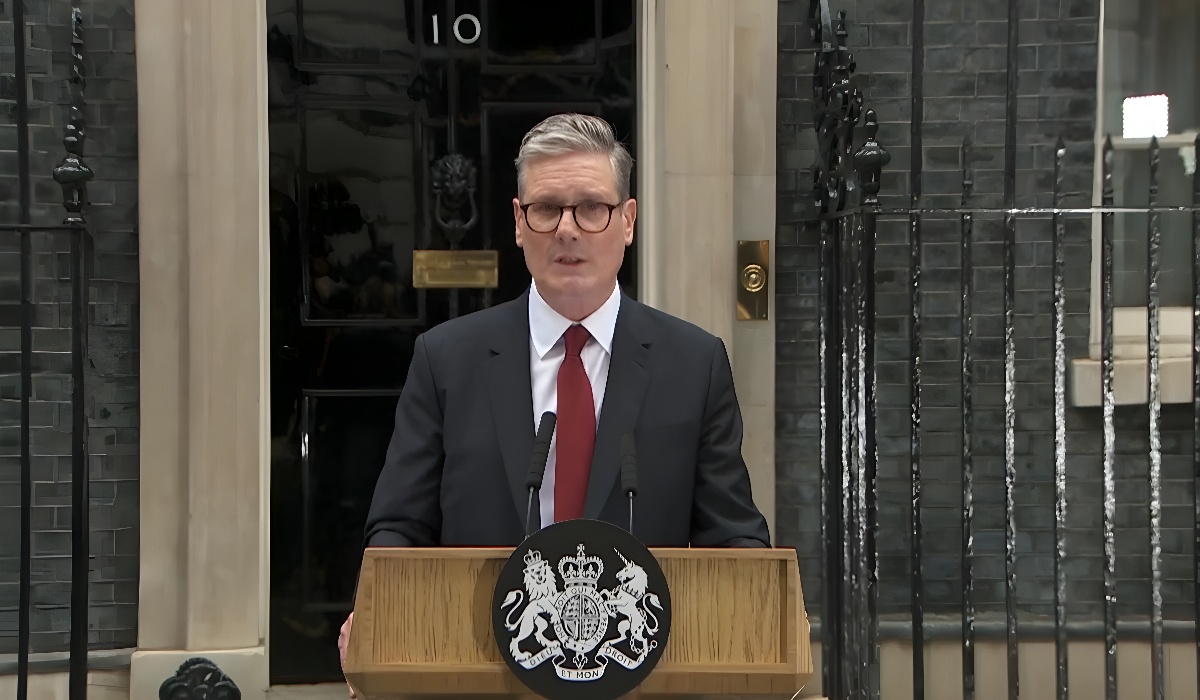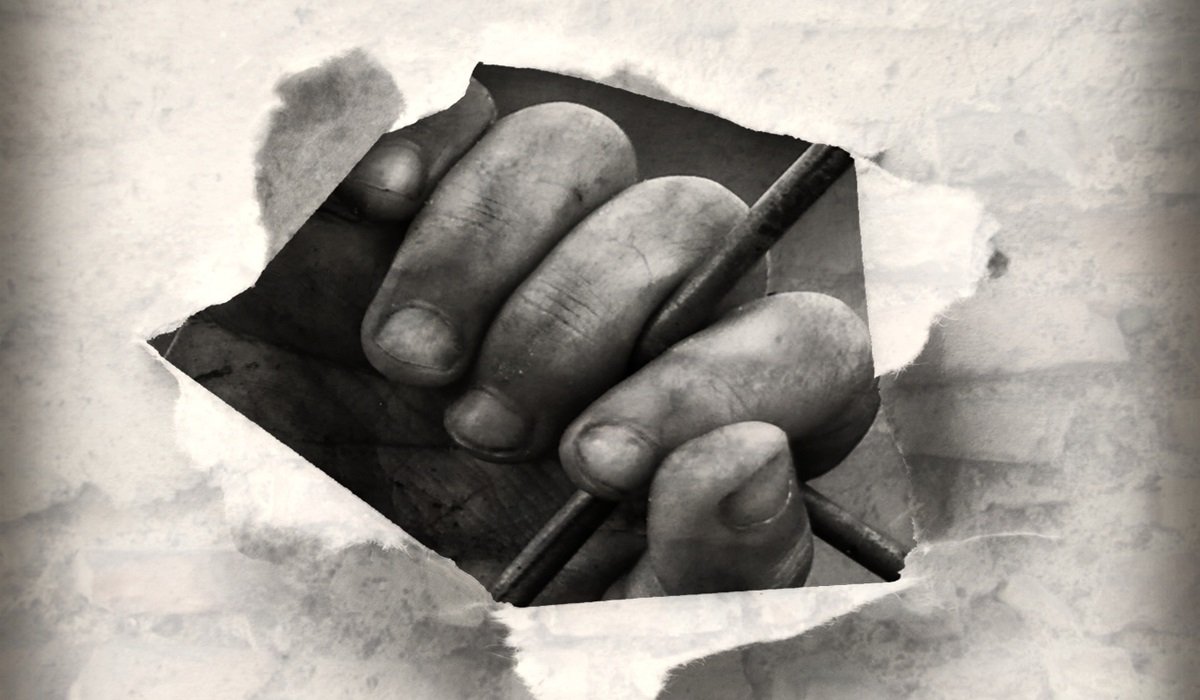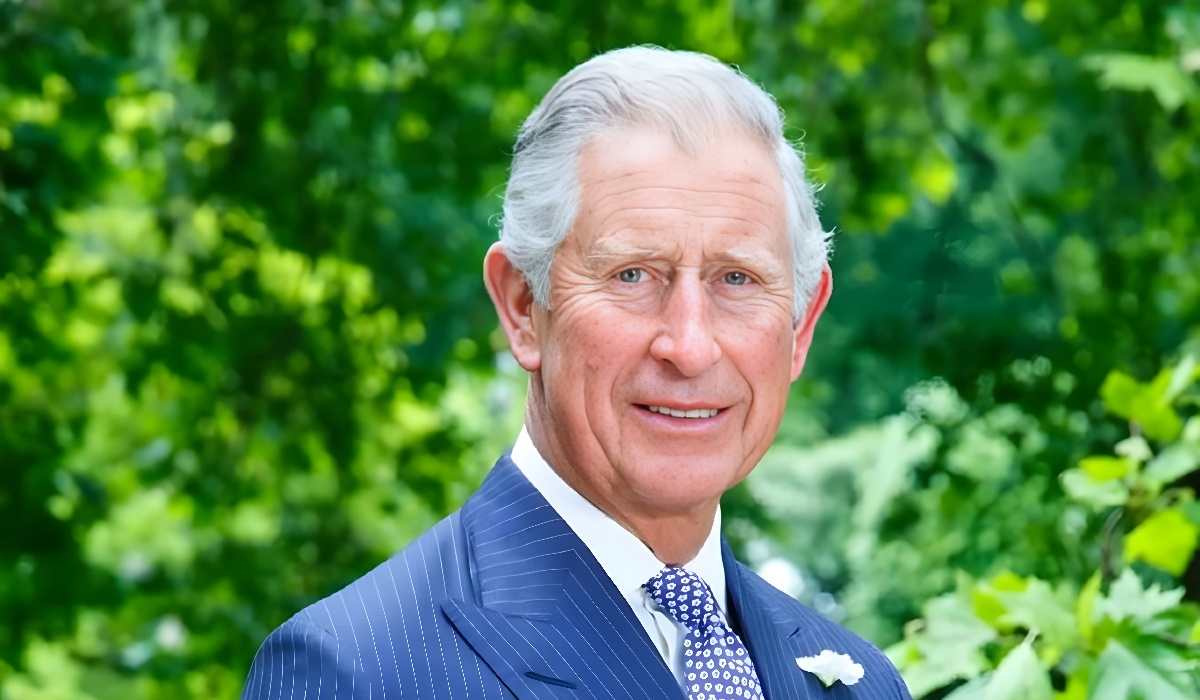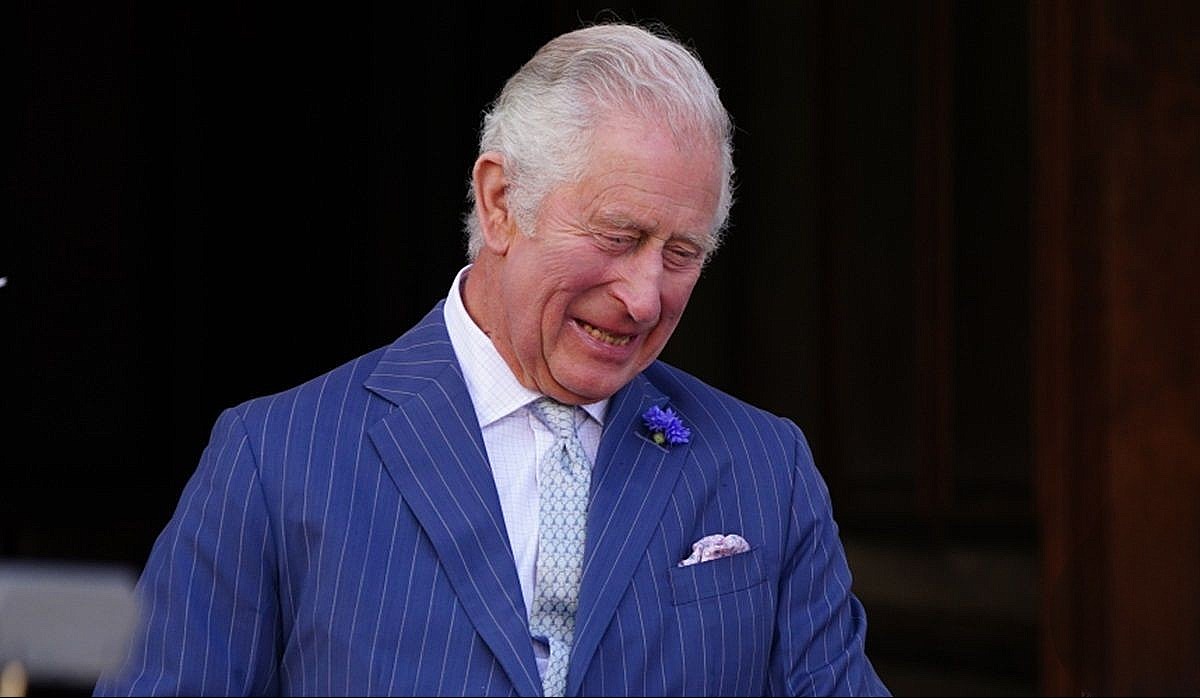Culture Minister Caroline Dinenage has stopped the export of ivory sculpture, ‘Death of Cleopatra’, carved by the artist Henri de Triqueti
UK Culture Minister Caroline Dinenage placed a temporary export ban on the historic ivory sculpture titled ‘Death of Cleopatra’ by a highly appreciated figure in 19th century art.
- The sculpture is valued at £150,000 and dates back to 1860
- Artist Henri de Triqueti was admired by Prince Albert and is best known for his work on the Albert Memorial Chapel, Windsor
Henri de Triqueti was a notable and influential artist of the era who sought patronage among the royal family. His standing and knowledge earned him the respect of Prince Albert, and his greatest works include the marbles produced for the Albert Memorial Chapel.
The sculpture, valued at £150,000, was exquisitely carved, and is the best example of Triqueti’s investigation of the combination of ivory and bronze. It is at risk of being lost abroad unless a UK buyer can be found.
“Henri de Triqueti is an artist of national significance – his Royal connections and influence on sculptors in Britain mean it would be a great shame to lose this exquisite sculpture abroad.” Culture Minister Caroline Dinenage
The Minister’s decision follows the advice of the Reviewing Committee on the Export of Works of Art and Objects of Cultural Interest (RCEWA). The committee noted that the sculpture was made for the British market, and is a superb illustration of Triqueti’s fluidity of forms, consideration of the female figure and distinctive eclecticism.
The sculpture is of outstanding aesthetic importance, with the Committee noting how the piece epitomizes the rich network of patronage between France and England following the exile of King Louis-Philippe’s court. The piece also exemplifies the Victorian taste for eclecticism and work in ivory, as well as the popularity of British collecting of French sculpture.

